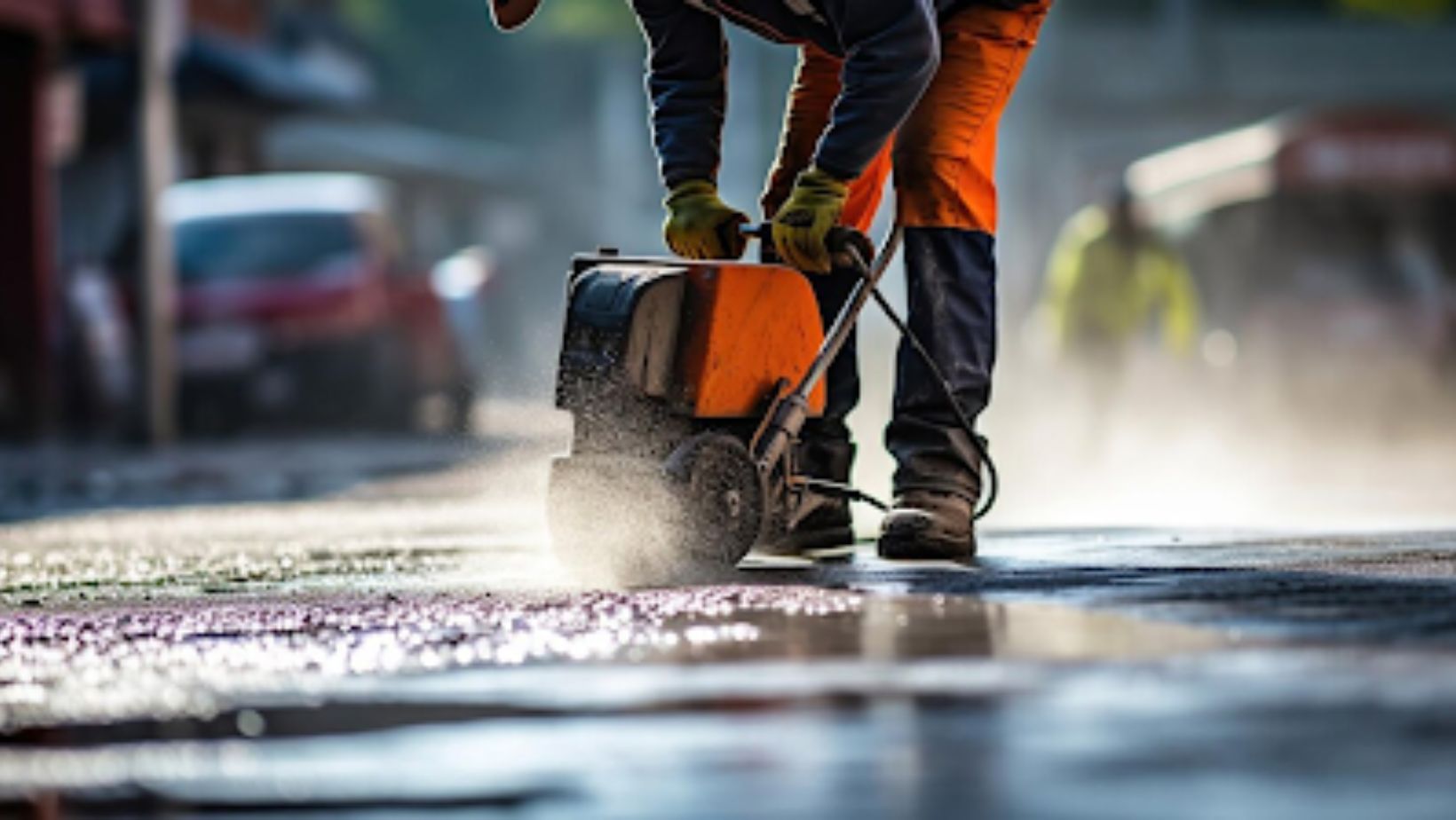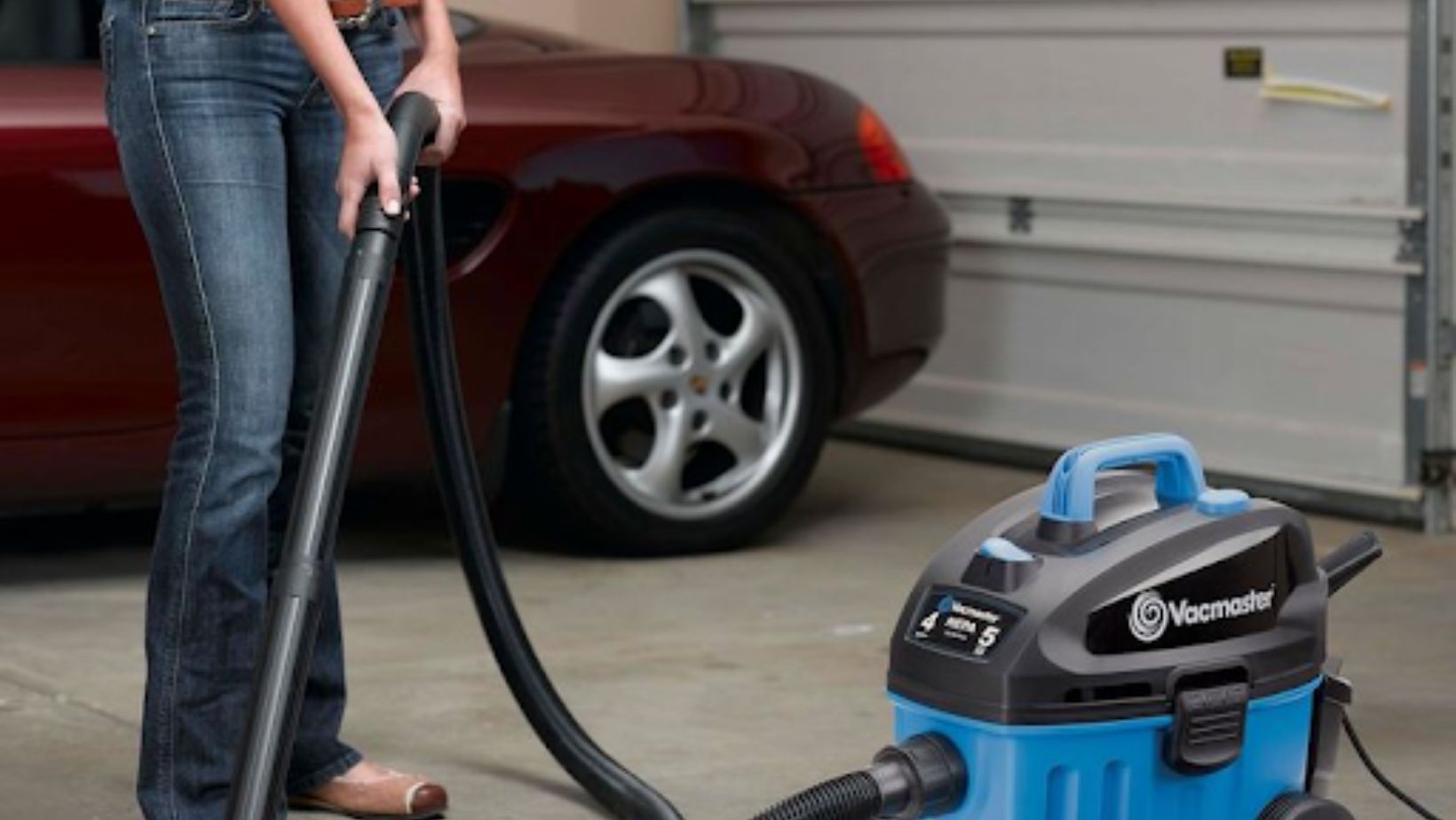
Many homeowners face the same dilemma, searching for ways to keep their driveway in good condition.
It’s not a fruitless pursuit. Keeping your driveway clean can boost your home’s curb appeal and help protect your investment.
You might need tools like high-pressure washers, industrial vacuum cleaners, and special stain removers to do a good job.
Understanding What Your Driveway Needs
Different types of dirt and stains require different cleaning methods, and the material of your driveway also matters.
For example, oil spills often need special degreasers, while mold and mildew can be tackled with bleach-based cleaners. At the same time, concrete driveways can usually handle stronger chemicals than asphalt ones.
Think about the size of your driveway, too. A bigger driveway might require more powerful and efficient driveway cleaner machines, like a surface cleaner or a motorized scrubber.
Using the right tools and cleaners is important to avoid causing damage.
So, how do you pick the best ones? Here are some pointers to help you out.
High-Pressure Washers
A high-pressure washer shoots out a powerful stream of water. This tool makes quick work of dirt, grime, and even tough stains that a regular garden hose can’t handle.
The high pressure allows the water to penetrate small cracks and crevices, giving your driveway a deep clean.
A high-pressure washer will make your driveway look much better and boost your home’s curb appeal. If you use it regularly, you’ll also prevent buildup that could cause damage over time.
Scrubbing Brushes
When picking out a scrubbing brush, choose one that’s sturdy enough to clean off tough stains but will not damage your driveway’s surface.
Pay special attention to bristles.
- Nylon or polypropylene brushes are perfect for concrete or brick driveways because they’re tough on dirt but won’t scratch.
- Steel or wire brushes work well for rougher surfaces like asphalt or gravel.
Also, think about the brush’s size and shape. Big, flat brushes clean large areas quickly, while smaller, pointed brushes are great for getting into corners and tight spots.
Remember to check the handle length so it’s comfortable to use.
Industrial Vacuum Cleaners
Industrial vacuum cleaners offer several advantages, such as powerful suction and large debris capacity.

These robust machines are perfect for cleaning up heavy-duty messes that ordinary vacuums can’t handle. They’re designed to tackle tough dirt, dust, and debris, providing a cleaner, safer driveway.
Besides, industrial vacuum cleaners are built to last. They’re more durable and sturdy than their domestic counterparts, meaning they’ll serve you well for years.
Stain Removers
These specialty cleaners are designed to tackle stubborn stains that can’t be removed by regular washing or sweeping.
Here are four types of stain removers that you should consider:
- Oil Stain Removers — They are ideal for removing oil and grease stains. They penetrate deep into the concrete to lift and dissolve the stain.
- Rust Stain Removers — These are used to remove rust stains caused by metal objects.
- Organic Stain Removers — This option removes stains from leaves, berries, or other organic materials.
- Paint Stain Removers — These removers can be a lifesaver if paint accidentally spills on your driveway.
Protective Equipment for Cleaning
Remember to gear up with the right protective equipment to ensure your safety during the cleaning process.
- You’ll need safety goggles to protect your eyes from splashbacks and dust particles.
- Thick, long-sleeved work clothes can safeguard your skin from chemicals and abrasions.
- Durable gloves are a must, particularly when handling harsh cleaning solutions.
- Closed-toe shoes with a firm grip protect your feet and prevent slips on wet surfaces.
- A respirator mask is also recommended, especially if using potent chemical cleaners.
Maintenance Tips for Cleaning Equipment
Here’s what you can do to keep your tools in top shape:
- Always clean your equipment after use. Doing so will prevent the buildup of dirt and debris that can cause damage.
- Store your gear in a dry, cool place. Moisture and heat can cause rust or other wear.
- Regularly check for any wear or damage. Early detection can save you from costly repairs or replacements.
- Lubricate moving parts as needed. This prevents friction that can lead to premature wear.
With proper maintenance, you’ll not only boost your home’s curb appeal but also prevent any damage.






